Israel-Hamas War: What happened on day 60?
Israel reportedly preparing to flood the Hamas tunnel network in Gaza • 120 Russians evacuated from Gaza to Russia
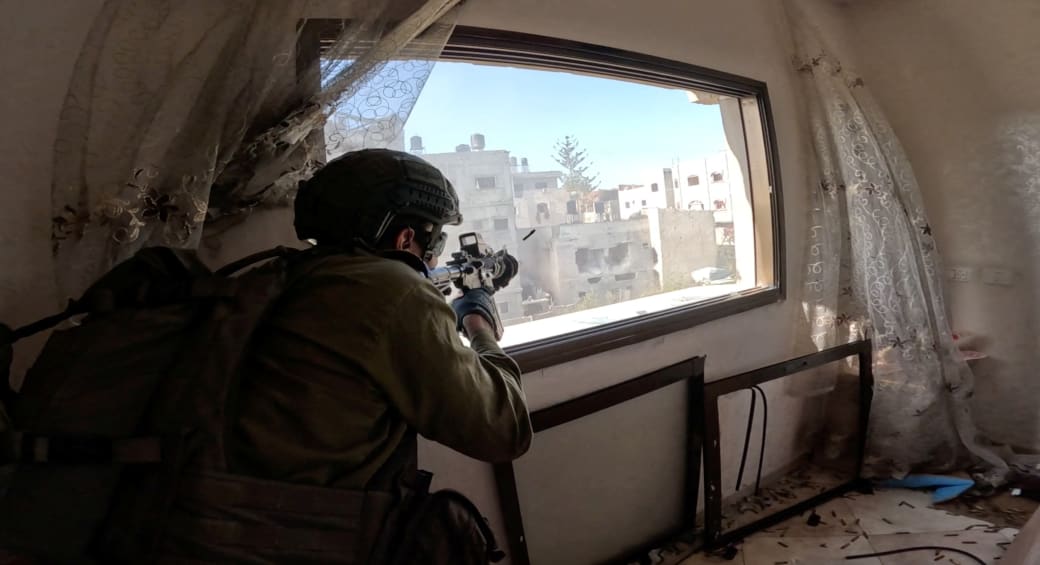
Rocket fall in Kiryat Shmona area causes road damage

Following sirens in Israel's North on Tuesday evening, a rocket fell in the Kiryat Shmona area causing damage to road infrastructure.
There were no causalities in the area.
Police are currently investigating the scene for shrapnel.
This is a developing story.
Go to the full article >>IDF Chief Halevi: Closing in on Hamas chief Yahya Sinwar
The IDF has encircled southern Gaza and Khan Younis, where multiple top officials have said Sinwar is hiding, though there is still no precise timeline for capturing or killing him.
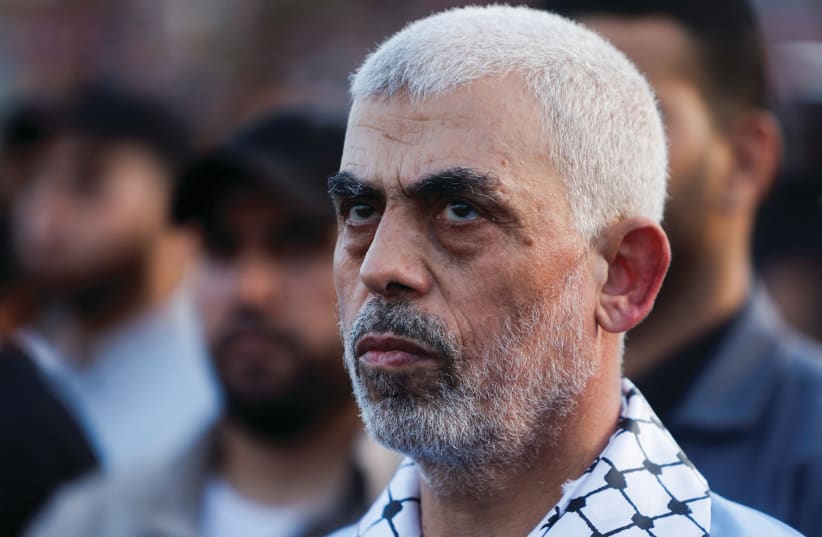
IDF Chief-of-staff Lt. Gen. Herzi Halevi on Tuesday hinted that the IDF is closing in on Hamas chief Yahya Sinwar as it has penetrated the heart of Khan Younis in southern Gaza.
He said that the IDF has encircled southern Gaza and Khan Younis, where multiple top officials have said Sinwar is hiding, though there is still no precise timeline for capturing or killing him.
Halevi stated, "We are attacking the center of gravity" of Hamas and that "we are asked frequently about the destruction in Gaza - Hamas is the address. [Yahya] Sinwar is the address."
Hamas abused civilian locations for terrorism
Further, the IDF chief said that Hamas has systematically abused civilian locations for terrorism, and yet the IDF is still trying hard to mitigate any harm to civilians.
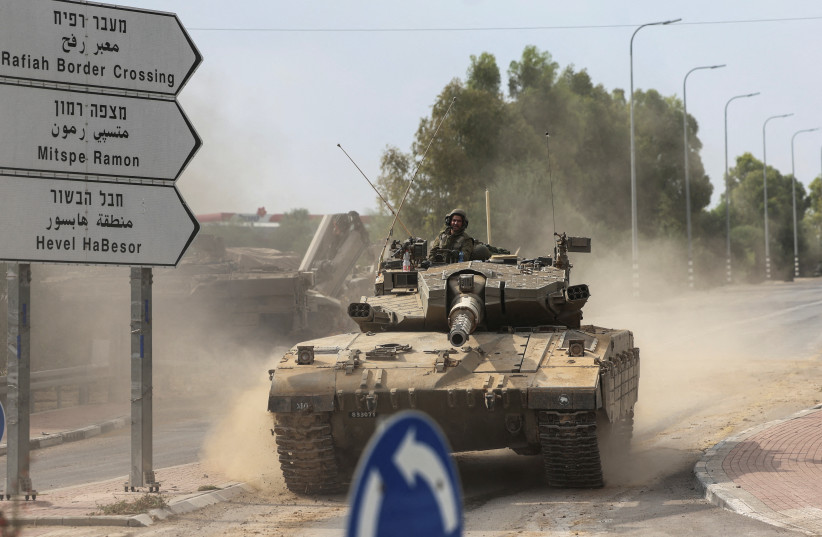
In addition, he said, "Whoever thinks that the IDF would not know how to renew the war, was mistaken, and Hamas is feeling that a lot.
The IDF chief flagged that a large number of senior Hamas officials have been killed just in recent days, on top of the dozen or so Hamas battalion commanders who have been killed during the two months of the war.
Also, Halevi said that Hezbollah is trying to hide how badly the IDF attacks on it have damaged its forces.
Go to the full article >>IDF data on anti-Palestinian Jewish violence in West Bank paints complex picture
Significant violent acts and long-term violence are up.
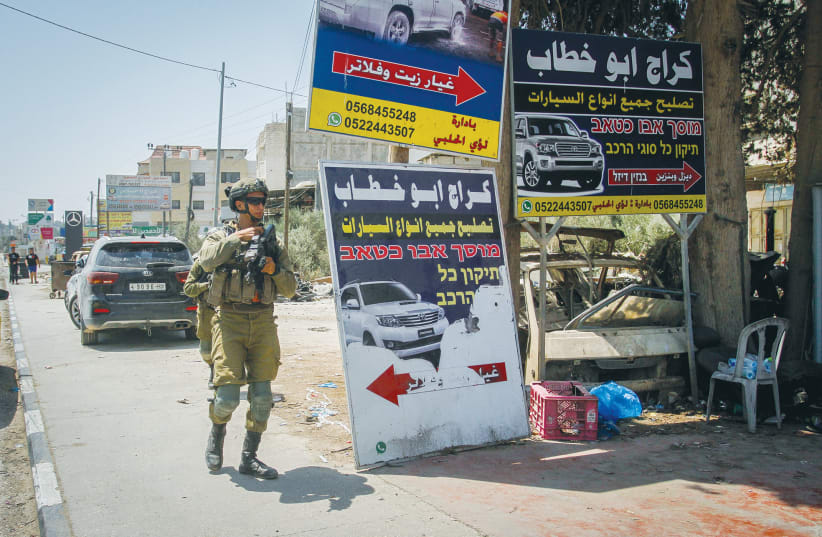
Data from the IDF Central Command paints a complex picture regarding Jewish violence against West Bank Palestinians since the start of the war as compared to 2022-2023 and before 2022, The Jerusalem Post has learned.
On one hand, the data shows there is no significant increase in the volume of Jewish violence against Palestinians post-October 7 versus immediately before October 7, or even for significant portions of 2023.
This point led right-wing figures to claim in an article on Sunday in Yediot Ahronot, which first reported the leaked data, that US, global, and Israeli defense officials are exaggerating the extent of Jewish violence against Palestinians.
On the other hand, IDF sources said Jewish violence against Palestinians was already at an unusual high in 2023 and even in 2022 as compared to prior years.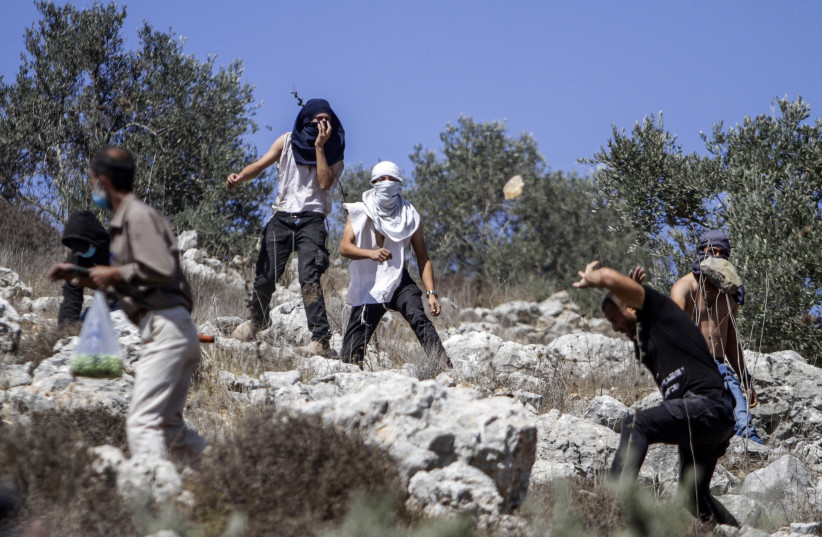
In other words, if there has not been an increase in the quantity of Jewish violence against West Bank Palestinians since the Israel-Hamas War started, it is mostly because the level of violence was already high in historic terms. This means that the level of violence of Jews against Palestinians during the war is still high.
Post-Hamas attacks sees rise in violence
In addition, IDF sources told the Post that the "significant violent acts" by Jews against Palestinians has been higher during the war even in comparison to before October 7, when there were some major violent attacks, like the mass attack on Huawara in February, but there were also less violent "price tag" attacks "only" damaging Palestinian property.
Moreover, sources said that not all Jewish violence is included in the report or leads to a criminal probe.
For example, there have been incidents where several Jews, with their faces covered, fired on a Palestinian village, and the Palestinians reported multiple dead Palestinians, but neither the IDF nor other law enforcement agencies have been able to substantiate the incident or take forward a criminal probe again individuals who they cannot identify,
Questioned about how the data was leaked, sources hinted that there are political officials with interests connected to aggressive ideology against the Palestinians, who received the data.
National Security Minister Itamar Ben Gvir and some of his staff are only one group of a variety of hard right-wing officials and their staff, who might have access to such data.
According to the data, there were 32 incidents of nationalistic violence against Palestinians the week before October 7, with 24 incidents the week after.
Other weeks since then ranged from 10 to 38 incidents, with the number of incidents going both up and down depending on the week.
However, all of these numbers are unusually high if compared to the period before 2022.
In March 2022, Palestinians from the West Bank initiated a series of waves of terror, which continued all the way until and through the current war.
Sources said that Jewish violence, including sometimes acts of terror, had spiked considerably once Palestinian terror spiked, though the numbers of Palestinian violence and terror acts still are much higher, reaching several hundred per year or more.
Go to the full article >>Shifa hospital director criminally probed under emergency war rules
Abu Salmiya is being criminally probed by the Shin Bet under current war emergency regulations relating to Hamas and other terrorists connected to the war.
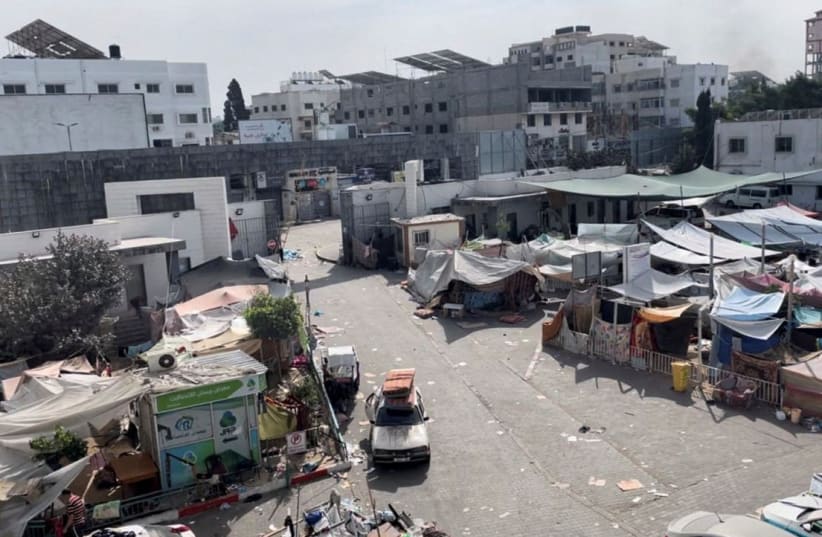
Gaza City Shifa Hospital Director Muhammad Abu Salmiya recently had a hearing before an unidentified Israeli civilian Magistrate's Court via videoconference in which his detention was extended, sources have told the Jerusalem Post.
Abu Salmiya is being criminally probed by the Shin Bet (Israel Security Agency) under current war emergency regulations relating to Hamas and other terrorists connected to the war.
As part of those regulations, Abu Salmiya is also still unusually being prevented from meeting with a lawyer.
Though sources did not identify the civilian court, traditionally, the Beersheba courts have handled a variety of Gazan terror cases.
As of Monday, the Post had only been hinted informally by some sources that he remained in Shin Bet custody, with the IDF legal division, the Shin Bet, the Justice Ministry, and the police all declining to comment on the record.
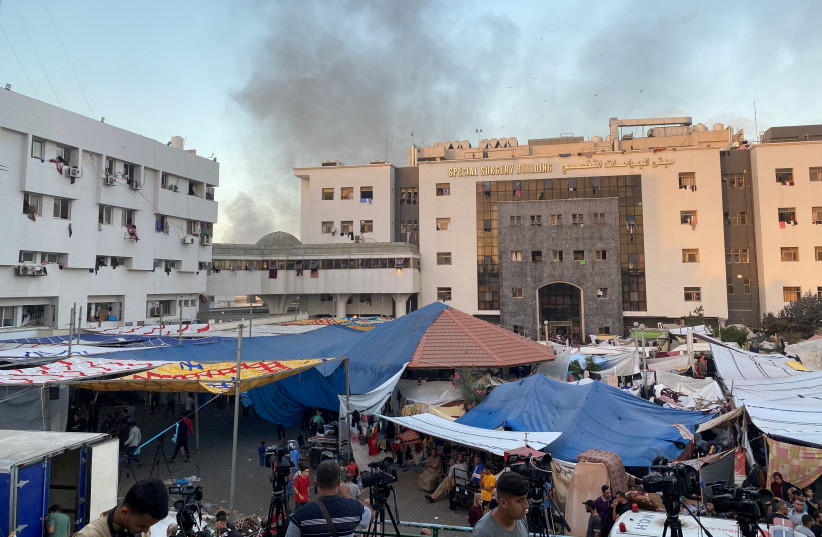
The IDF and the Shin Bet announced his arrest on November 23, but since then have given no official update.
Under standard rules in Israeli civilian courts, the state must generally file an indictment within a certain number of days or, in exceptional circumstances, within a few weeks, in order to justify keeping a suspect in detention.
In the Israeli military courts that deal with West Bank Palestinians, the military prosecution sometimes has up to a period of months to file an indictment, during which the Shin Bet could keep someone in detention if it involves a security crime.
There is also administrative detention, which is an entirely different track, but that is usually reserved for terrorists who are expected to perpetrate violence, something Salmiya has not been accused of.
Israel also has a law for “unlawful combatants” which is being used to deal with at least 150 or more Hamas terrorists who were captured while fighting IDF forces.
It appears that Israel is applying these rules to Abu Salmiya.
Expansion on detention?
On November 28, the Palestinian-leading Middle East Monitor reported that “the Government Media Office in Gaza said yesterday evening that Israel had extended the detention of the director of Gaza’s Al-Shifa Hospital for an additional 45 days.”
No Israeli office has confirmed the specific number of days his detention was extended, but when previously questioned about the handling of other unlawful combatants arrested during the war, the IDF said, “there are terrorists who were captured in connection with the slaughter perpetrated by a terror organization and who are detained by the State of Israel. This is according to the law, whether based on [judicial] detention orders or whether based on the authority of IDF officials who have jurisdiction to order their detention. Regarding the latter category, judicial review regarding any continued detention will take place before a judge 45 days from the date of the detention order.”
Back on November 23, questioned repeatedly earlier in the morning about why he had been arrested and why no official announcement had gone out at that point, Israeli and IDF officials' responses alternated from surprise at the event to a promise that an announcement would go out soon.
However, even the 2:30 p.m. announcement on November 23 did not make any direct charges against the Shifa chief.
Rather, the announcement said that he had been arrested and brought to the Shin Bet for interrogation after significant testimony and video evidence from others that Shifa had been used as a command center for Hamas during the director's tenure.
The statement stated, "The terror group Hamas utilized many resources, including electricity in order to strengthen its tunnels which it built under the hospital. In addition, Hamas kept military items stored in the hospital and in its immediate surroundings."
In addition, the statement read that after the October 7 Hamas mass terror attack on Israel's South, the terror group "used the hospital as a refuge for its terror forces and even brought Israeli hostages to there who were kidnapped during the day of slaughter. A pathology report confirmed that soldier Noa Marciano was murdered on the grounds of Shifa Hospital."
Next, the statement said vaguely that, "a decision regarding his detention would be made in conjunction with the findings of the investigation regarding his involvement with the hospital's connection to terror."
Salmiya faces allegations of “aiding the enemy during wartime and providing service to terror organizations,” the al-Quds news network reported.
If true, Salmiya would still eventually need to be prosecuted in a special unlawful combatants proceeding or in Israeli civil or military courts.
The US generally held unlawful combatants of al Qaeda after the September 11, 2001 attacks on the Twin Towers and the Pentagon only if they were battlefield arrests, not mere conspirators or those who had aided the terror group in logistics, as Salmiya may eventually be accused of.
However, Israel’s law on unlawful combatants could be used more broadly.
There was heavy global criticism of Abu Salmiya’s arrest when it was announced.
Go to the full article >>US to impose sanctions on Israeli settlers who attacked Palestinians

The State Department is expected as soon as Tuesday to impose sanctions on several dozen Israeli settlers involved in attacks against Palestinians, banning them from travel to the US, Axios reported, citing two US officials.
Go to the full article >>Lebanese army says one soldier killed in Israeli shelling in south Lebanon

One Lebanese soldier was killed and three others wounded when Israeli shelling hit near a village in south Lebanon near the border with Israel, the Lebanese army said in a statement.
Go to the full article >>Rocket shrapnel in Tel Aviv injures 40-year-old man

Following the recent barrage of rockets fired at Tel Aviv and the surrounding Dan area on Tuesday afternoon, a 40-year-old man has been lightly injured from shrapnel, according to a Magen David Adom report.
Further damage caused by the shrapnel is being investigated.
This is a developing story.
Go to the full article >>IDF penetrates heart of southern Gaza
Although the IDF had achieved this penetration on Sunday, this news was kept classified in order to take the terror group by surprise.
The IDF has penetrated the heart of Khan Yunis, which is itself the heart of Hamas in southern Gaza.
It had achieved this penetration on Sunday, but the announcement was only made on Monday.
The IDF took a variety of maneuvers to penetrate Khan Younis.
Simultaneously, the IDF invaded Khan Younis from the east, so that Hamas would need to fight on multiple fronts.
A massive force of multiple brigades was thrown into the onslaught to take over Hamas's most crucial city in southern Gaza.
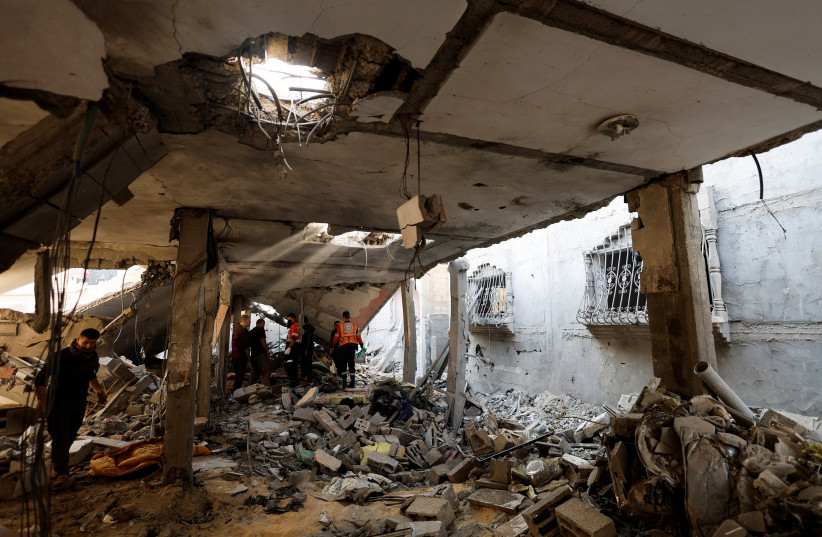
The air force accompanied the ground forces thrust into Khan Yunis with significant attacks to eliminate Hamas command and control capabilities.
IDF sent large force into Shejaia at the same time as Khan Yunis attack
At the same time as the attacks on Khan Yunis, the IDF sent a large and hard-hitting force into Shejaia, known as Hamas's greatest remaining stronghold in northern Gaza.
A senior IDF official said that the IDF had purposely waited to assassinate the head of Hamas's Shejaia battalion until just before it was ready to invade in force in order to maximize the impact of the shock and disorganization on the Shejaia Hamas forces.
In Shejaia, the IDF hurled large infantry forces at Hamas along with massive air strikes and also succeeded in destroying significant positions and command centers.
In addition, the IDF also attacked parts of Jabalia and Beit Hanoun in northern Gaza which still had not been entirely cleared, though those areas were already more under IDF control than Shejaia, which the IDF had only started to attack recently.
The IDF also ramped up its attacks on Hamas in central Gaza, which had already started in recent days.
Several hundred Hamas terrorists were killed on Sunday, marking one of the deadliest for Hamas's forces, and bringing the number of dead Hamas forces to around 6,000 with thousands wounded as well.
Based on these estimates, Hamas is assessed as having around 20,000 remaining potential fighters of its original 30,000.
The IDF has said less about the estimated 10,000 Islamic Jihad forces, though there have been many specific anecdotes of attacks against the terror group along with Hamas.
Based on the combined attacks, a senior IDF official said that Sunday was the most important and largest day of fighting for the IDF since the counter-invasion of Gaza.
Civilians from Khan Yunis had been directed to evacuate further south to Rafah as well as to a safe area toward the west of Khan Yunis.
Go to the full article >>Tel Aviv Stock Exchange says no unusual trading ahead of Oct 7 Hamas attack
The activity, "exceeded the short-selling that occurred during numerous other periods of crisis" such as the 2008 financial crisis and COVID-19.
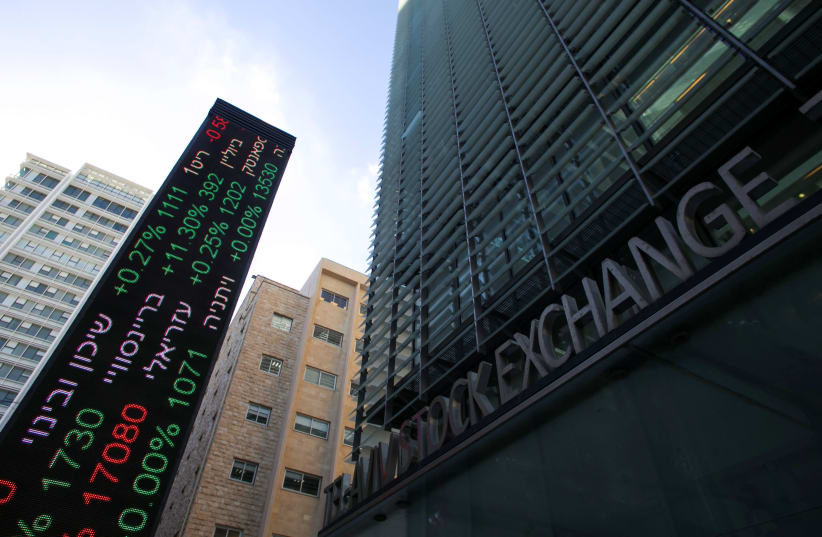
The Tel Aviv Stock Exchange said on Tuesday a report by U.S. researchers suggesting there were investors in Israel who may have profited from prior knowledge of Hamas' Oct. 7 attack was inaccurate and its publication irresponsible.
Research by law professors Robert Jackson Jr from New York University and Joshua Mitts of Columbia University found significant short-selling of shares - when investors bet on share prices to fall - leading up to the attacks, which triggered Israel's ongoing war with Hamas.
The activity, they said, "exceeded the short-selling that occurred during numerous other periods of crisis" such as the 2008 financial crisis and COVID-19.
They wrote that for Leumi, Israel's largest bank, 4.43 million shares sold short over the period Sept. 14 to Oct. 5 yielded profits of 3.2 billion shekels ($859 million).
TASE authors miscalculated

But the Tel Aviv Stock Exchange (TASE) said the authors miscalculated, since share prices are listed in agorot, which are similar to cents and pence, rather than shekels - putting the potential short sale profit at just 32 million shekels.
Yaniv Pagot, head of trading at the exchange, said that in looking at short interest in Leumi, there was an increase of some 4.5 million shares in the week ending Sept. 21 and it then remained stable.
"I don't see in the data something even close to what they wrote in the paper," Pagot told Reuters, adding the researchers didn't speak to the TASE or members. "There was nothing unusual in short positions in the stock exchange in the two months before the attack."
The professors were not immediately available for comment.
The short position in Leumi, Pagot said, was taken by an unidentified Israeli bank known to the TASE.
"We know their compliance is very strict so it's unlikely that such a position that came from a terror organization can pass through this member's compliance for money laundering or something like that," he said, referring to media speculation that Hamas itself was behind the short selling.
Israel's securities regulator said it had been aware of the report for a week and was in contact with the researchers, but declined to comment while it investigates the TASE's rebuttal.
Go to the full article >>Rocket fire in Ashkelon causes extensive destruction to apartment

Extensive damage to an apartment was caused following the latest barrage of rockets in Ashkelon on Tuesday.
Two women in their 60s were injured by shrapnel and were evacuated to Barzilai Medical Center.
This is a developing story.
Go to the full article >>Israel-Hamas War: What you need to know
- Hamas launched a massive attack on October 7, with thousands of terrorists infiltrating from the Gaza border and taking some 240 hostages into Gaza
- Over 1,200 Israelis and foreign nationals were murdered, including over 350 in the Re'im music festival and hundreds of Israeli civilians across Gaza border communities